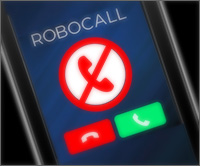EverSafe Scam Watch
Protecting Your Financial Health
Tech-Support Scammers are Targeting Seniors
The crime is known as the “tech-support scam,” and goveranment data show that older adults are the main targets. In this widespread fraud, crooks con their victims into paying for computer problems that do not exist.
 Overall, there were 143,000 reports of such crimes in the United States last year, according to the Federal Trade Commission. But when government officials analyzed the data, they were startled by the advanced age of most victims.
Overall, there were 143,000 reports of such crimes in the United States last year, according to the Federal Trade Commission. But when government officials analyzed the data, they were startled by the advanced age of most victims.
“People 60 and over were about five times more likely than younger people to tell us they lost money on this scam, even though they were less likely than younger people to say they lost money to many other types of scams,” wrote Cristina Miranda of the FTC’s Division of Consumer and Business Education on the agency’s website https://www.consumer.ftc.gov/blog/2019/03/ftcs-tech-support-takedown-2019.
In this elder fraud scam, crooks connect with victims through telephone calls, pop-up warnings on their computers or online ads and listings that appear near search results. They warn targets that their computers have a virus or other serious problem—and then seek payment to fix the phony problem.
Typically, the schemers ask their targets to put money on a gift card, a cash transfer app or some other means of payment that is hard to reverse.
If you have been the victim of such a fraud, you should inform the company that issued the credit card or app you used to pay, and the sooner the better. And if you gave the crook access to your computer, be sure to update your security protections and run a scan to spot any activity that looks questionable.
Consumers may make complaints about tech support and other frauds by going to: www.FTC.gov/complaint.
A Sweepstakes Fraud Picked the Wrong Victim
The caller told his intended victim that he had won $72 million in a lottery. All the target had to do was turn over $50,000 in fees in order to get the windfall.
“I know that you was a judge, you was a lawyer, you was in the U.S. Navy,” said the caller, speaking in a Jamaican accent. “I do your background check. You are a big man.”
What the caller did not know was that his 90-year-old target, William Webster, was a former head of the FBI and CIA, with a lifetime of expertise in law enforcement. Webster ended up playing along in a sting operation that led to the crook’s conviction and sentence to almost six years in prison.
Sweepstakes frauds, such as Jamaican lottery scams, have flourished in recent years, conning people out of hundreds of millions of dollars. At one point, Jamaican hustlers were placing 30,000 such phone calls to the United States every day.
The crooks tell their targets that they have won a huge prize—but must pay a fee to collect the winnings. Such scams have cost victims their life savings.
In an FBI news release, Special Agent John Gardner said he gets such complaints all the time. Perpetrators often prey on older people, he said, because they tend to be more trusting, financially secure, and lonely. Crooks even trade “lead lists” on the Internet that contain older adults’ names, telephone numbers and other personal data. “They’ll cold-call them,” Gardner said. “And a lot of them won’t fall for it. But all it takes is just one.”
As a certain Jamaican con artist learned the hard way, William Webster was not the one. If you happen to get one of those calls, make sure you are not the one, either.
Q&A
with Elizabeth Loewy,
Co-Founder and COO of EverSafe
Q: Say you’ve just heard in the news about another huge data breach affecting tens of millions. What should you do?
A: At this point, hundreds of millions—maybe billions—of personal records have been exposed in major breaches, like Equifax and Marriott. And those are just the biggest headlines. In 2019 so far, millions of records have already been compromised involving health care, government agencies, video games, financial advisors and consumer products.
The prudent course is for everyone to assume their personal information is at some risk.
What should you do? In certain cases, it may make sense to initiate a fraud alert, credit freeze or credit lock with the major credit bureaus. But people should understand that those measures provide only partial protection. As a former prosecutor, many of the theft cases I investigated never affected the victim’s credit report. Credit report monitoring will not identify potential fraud in most financial accounts.
That means you should closely monitor all your finances for erratic activity—depository accounts (like checking and savings accounts), retirement accounts, investment accounts and credit cards. Also, you should regularly change your passwords and don’t use the same ones over again.
Unfortunately, keeping a close eye on all financial accounts is not easy for everyone. When that’s the case, a technology service can be a lifesaver. Fintech tools now exist that can monitor credit—and beyond. They can analyze data across all financial accounts on a daily basis, spot suspicious activity, and send alerts to consumers and their designated trusted contacts.
These same tools can also scan the Dark Web to see if your personal information is exposed, including Social Security numbers, email addresses, passport numbers, and credit and debit card numbers.
Future data breaches are inevitable. That makes it vital to have a good defense—before there’s a crisis. Be proactive—for yourself and your loved ones.
TIP: To initiate a credit freeze, lock or alert, you need to contact each of the three major credit reporting agencies: TransUnion (888-909-8872), Equifax (800-685-1111) and Experian (888-397-3742).
To learn more about how to protect your financial accounts, including how to initiate a fraud alert and credit freeze, click on https://www.eversafe.com/resources-list/.
Risk Factor: Social Isolation and Financial Abuse
Elder abuse is a widespread and typically hidden problem that may include physical and emotional mistreatment—and financial exploitation.
About one in 10 older Americans has experienced some form of elder abuse, according to the National Council on Aging. Financial exploitation. the most common form of abuse in later life, can take many forms, varied as check forging, seizing control of a victim’s retirement benefits and financial accounts, stealing their life insurance and even claiming ownership of their home.
Social isolation is a major risk factor. According to the National Institute on Aging, “likely targets” include individuals who have no family or friends nearby. When combined with dementia, an older person becomes extremely vulnerable.
 Exploiters may include family members, paid caregivers, professional associates, home-repair workers, “friends” and acquaintances. In such cases, concerned relatives and trusted advisors may be the only safety net.
Exploiters may include family members, paid caregivers, professional associates, home-repair workers, “friends” and acquaintances. In such cases, concerned relatives and trusted advisors may be the only safety net.
Financial abuse is often hidden. But one red flag may be a sudden change in the older person’s financial situation. More broadly, signs of elder abuse may include depression, confusion, agitation, weight loss and a messy personal appearance, according to the National Institute on Aging.
It is essential that caring individuals, such as adult children, keep their eyes open to protect an older adult who is at risk (without being intrusive or condescending).
For in in-depth study of this problem, look at this report by the Securities and Exchange Commission: https://www.sec.gov/files/elder-financial-exploitation.pdf.
Tip: Protect Yourself from Financial Exploitation
While there is no single answer, older adults can take important steps to safeguard their well-being and avoid financial abuse.
Here is a partial list of guidelines adapted from the National Council on Aging. For further details: https://www.ncoa.org/public-policy-action/elder-justice/elder-abuse-facts/.
- Do what is needed to support your health and wellness.
- Plan for the future, such as establishing a power of attorney or living will. But get independent advice before signing documents.
- Don’t get isolated. Stay active and engaged in the community and connected with friends and family.
- Use direct deposit for all checks.
- Review your will periodically.
Know your rights. If you use a paid or family caregiver, you have the right to voice your preferences and concerns.
Fighting Back: How to Answer a Robocall
We all get those annoying phone calls with a weird, automated voice on the other end. Americans received 26.3 billion robocalls last year, according to the Wall Street Journal. And by some estimates, the number is much higher.
 But the calls can be more than a mere nuisance. They are sometimes a tool used by scammers to commit a crime. The unnatural voice on the other end of the line may say you owe money, maybe pretending to represent a utility, government agency or a foreign consulate, according to the FTC.
But the calls can be more than a mere nuisance. They are sometimes a tool used by scammers to commit a crime. The unnatural voice on the other end of the line may say you owe money, maybe pretending to represent a utility, government agency or a foreign consulate, according to the FTC.
Robocalls may also conduct “spoofing,” in which your phone will display a deceptive phone number that makes the robocaller look legitimate, such as that of a government agency.
When you get robocalls, the FTC advises:
- Hang up the phone (and don’t feel like you’re being rude). The communication is not legal, if the caller is trying to sell you something or if you have not provided written permission to be called.
- Consider using technology to prevent such calls, such as a call-blocking app or device. Your phone provider might be able to help with that. For more info, go to www.ftc.gov/calls.
- Report the call. The FTC can take your complaint online at www.ftc.gov/complaint.
The public backlash against robocalls is growing. Attorneys general from all U.S. states are supporting a Senate bill to crack down on the problem (the TRACED Act—or Telephone Robocall Abuse Criminal Enforcement and Deterrence Act). This legislation would give the FTC and Federal Communications Commission more authority to authenticate calls and allow technology to prevent them.
Click here to view a video by the FTC and AARP on the problem of robocalls.




